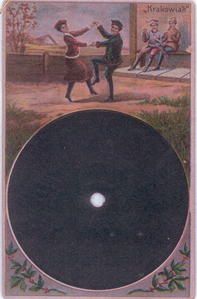 |
Musika (Phono Cards)
|
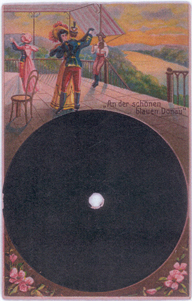 |
Please note: This is a discographical catalog - items are NOT available for sale from us
Acknowledgements:
I am indebted to Lyle Boehland,
Benno Häupl, Raoul Konetzni, and Stephan Puille, who provided
images.
Introductory notes:
The basic idea of a gramophone postcard is to glue a single sided
miniature
disc record onto a postcard and punch a center hole through both card
and
disc. For further details see the exploratory
history of the phono postcard
Musika Phono Cards:
(Little is presently known about phono cards manufactured or
distributed
in the US. It seems that , unlike the situation in Europe, most
“Talking
Cards” in the US were for advertising purposes. The striking Stag
Tobacco advertising cards refer to patents dating from 1901, 1902,
1906, 1908 and 1909, and it can be assumed they predate the US entry in
WWI. Other important manufactureres were the Greetaphone Co
at Kansas
City,
the Record Voice Co. Laboratories at Canton, O. and the
A[dvertising]
Record Corp. at New York City (around 1923), which later became the
Record
Corporation at Cliffside, New Jersey. The latter had an arrangement
with
the Pathé film company – at least one card is known to feature a
selection from the Edgar Wallace thriller “The Green Archer”. Another
card
bears a message from Arthur Whitney, Republican Candidate for Governor.
On many American cards the records are attached by two staples close by
the center hole, a procedure not in use in Europe)
Some cards, clearly intended for export to the US, have been manufactured in Germany. Among these are cards with the trade-mark “Musika”. Nothing is known about this company, which may or may not have been associated with “Musica”, a name that was protected by French singer and entrepreneur George Dutreih in Paris in 1904, and renewed by the German Polyphon Werke Aktiengesellschaft in 1921. Usually a brownish disc is pasted on a beautiful, specially designed chromolitho card. The backs are divided. Postally run cards appear to have been postmarked in 1914. The source of the actual recordings was the Berlin based Zonophon company, which first announced phono cards in 1903 ("Die sprechende, singende und musizierende Ansichts-Postkarte"), and again "Musik-Postkarten" in 1910. The original Zonophone phonocards had been monochrome (white) with embossed pictorial and floral designs, some had matching photographic portraits of the artists. The links between Musika and Zonophon remain unclear
Label listing:
Musika and Zonophon
combined listing
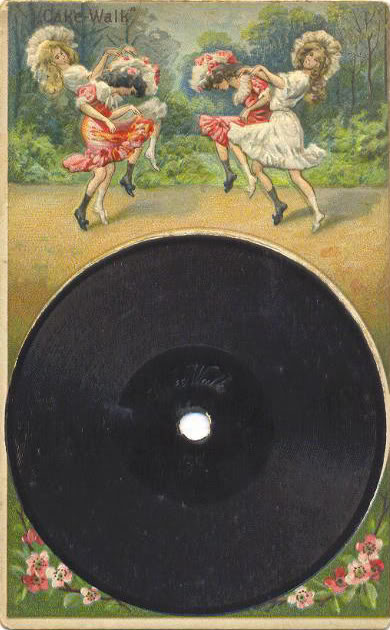
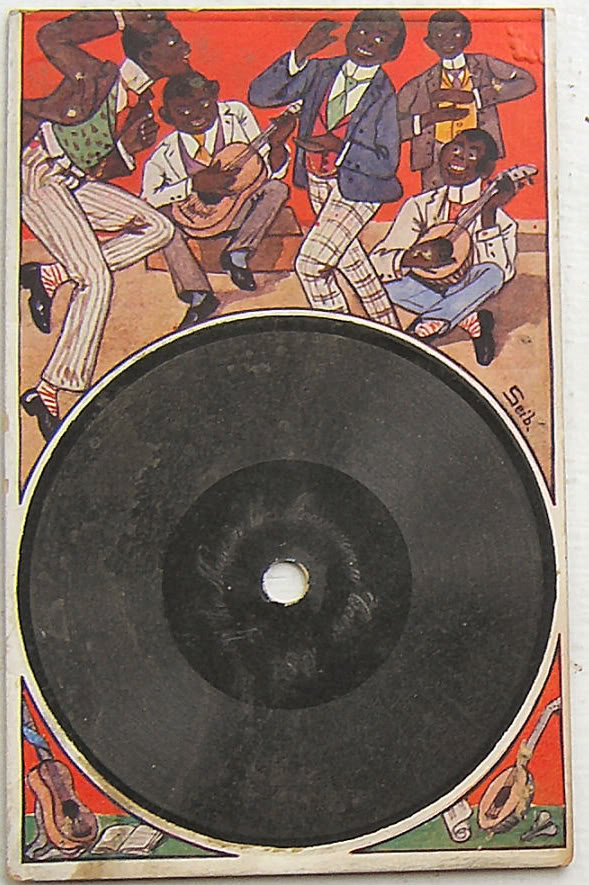
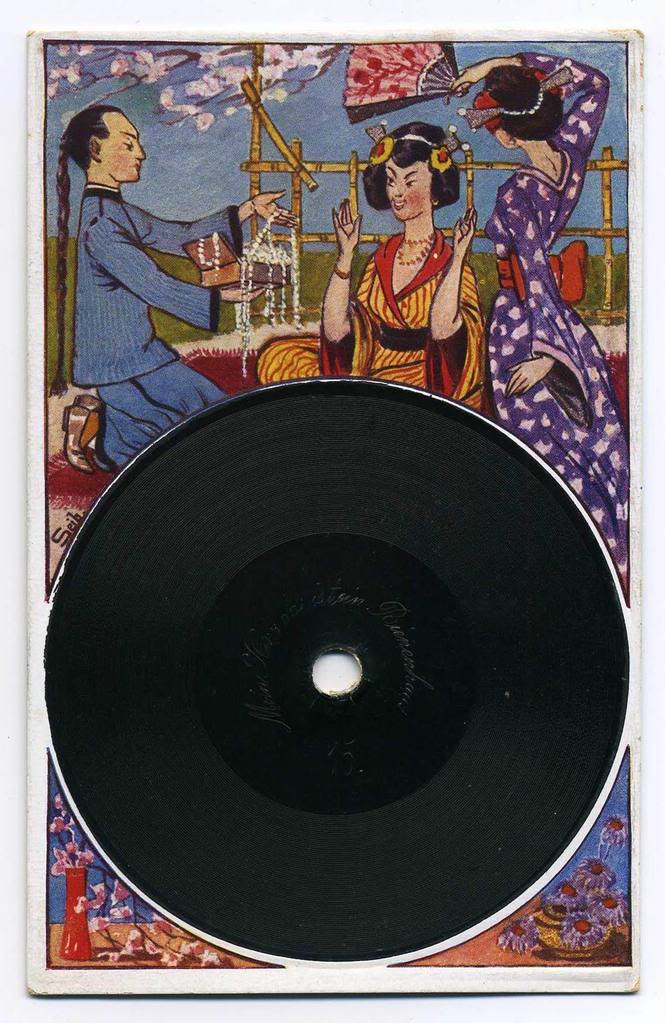
It is not presently possible to determine the total number of cards
produced, and information on matrix numbers etc can only be derived
from
physical autopsy of the artifacts. If you have additions or
corrections:
Please contact us by e-mail: Rainer
E. Lotz
Updated 2008-01-20
Rainer E. Lotz
Rotdornweg 81
53177 Bonn, Germany
Phone(International): +49-228-352808 / Phone(National): 0228-352808
Fax (International): +49-228-365142 /
Fax
(National): 0228-365142
E-Mail:
Rainer
E. Lotz







